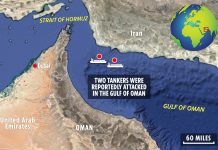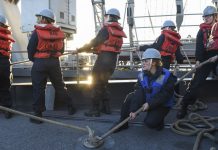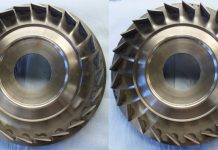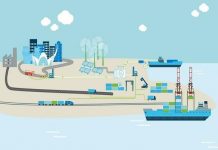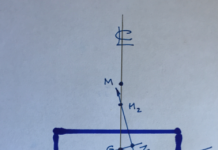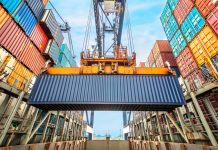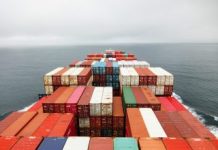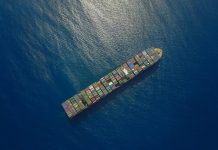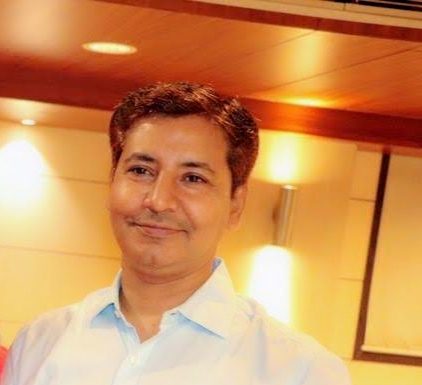Transcript of the interview of Mr. Subrat Mukherjee, the GM (Manning) Dockendale Ship Management DMC Co. with Kanishka Vishal.
- You took over the charge as General Manager of Dockendale on 1stAugust 2014, how it is like working with Dockendale and holding such a responsible position. How has been your experience?
Yes, the data is absolutely correct, I am here for almost 2 and ½ year now. Looking after manning and crewing department. This department takes care of complete management and manpower. I have been doing this job for many years, in fact it has been almost 13 to 14 years now. It has now become a part of my nature. Yes, the responsibilities are always there.Whenever it is concerned to a person, living thing, a man or a woman the responsibilities are immense. If the machinery gets damaged, it can be repaired or it can be thrown, but as far as human beings are concerned you have to be give too much emphasis on the well-being of the person.
- Starting from Lucknow and now as a manager in Mumbai, tell me about your journey so far. How bumpy was the ride till here?
Well, it was definitely not a bumpyride, but neither can it be termed as smooth because many of the things were unplanned and absolutely unknown. As you have mentioned, I am coming from Lucknow. I appeared for IIT- joint entrance exam. JEE and DMET merged together, particularly from that year. In those days, we had only 5 institutes under IIT. I was short of few marks to get into those 5 and then I got a call from DMET. I would like to share an ironical thing. The formwas never filled by me but a friend of mine who aspired to be a marine engineer. But this boy couldn’t make into DMET and I got selected with no acquaintance of marine engineering till then.
- You never choose to be a marine engineer, it was your destiny.
No, I never chose. This friend of mine always used to tell me about marine and shipping industry. His neighbours were in the merchant navy, and he knew some captains and chief engineers. However, his database and research were very precise and helpful. Then I realized, this was the thing I should have been doing and can look forward to. And as you said destiny definitely place the mark and I landed up in DMET.
- How do you see the employment of Indians in the Shipping industry in next 10 years, as there has been a shift in trends lately?
I don’t like to predict normally. Going by the facts, yes,the situation in India is changing very fast. There are lots of opportunities coming up beside marine lines. If you are ready to study and ready to work hard then good opportunities and salaries are there, even on shore. What Isee as a trend is that,the talent which was attracted towards merchant navy before has definitely diminished. We get 10 % to 15% boys who are really good, rest 20 to 30% are just average and remaining I am not happy about. If the basic input of boys is not good, the overall quality would definitely get affected. The training which was been imparted and the sincerity which was been shown at our times have gone down for reasons unknown to me. The teachers are missing, knowledge, integrity, and professionalism are missing. If these vitals will be missing, it is difficult for boys to inculcate the best.This reflects if you cannot produce good crops you cannot market good grains. Thus, if your quality keeps deteriorating it is very difficult to sustain in the market.
We were never a big number as far as rating are concerned. ThePhilippines and other South Asian countries have been far ahead of us and nowadays china has taken over. Our forte was definitely people who had good technical knowledge and officers like qualities. So, all the position of officers and engineers are taken up by Indians. At one hand, we are becoming costly day by day. We want wages which perhaps Europeans are ready to come at. And at the same time, our quality is going down. This becomes a very alarming situation and may lead to further unemployment of Indian seafarers.
- People talk about automation in marine industry, do you think this will create a new buzz in the coming days, as what computer did to our clerical employment?
It sounds scary. I was also going through this kind of articles, where they say the complete engine room will vanish, replaced bybatteries. These batteries will be taking charge of the ship, from point A to point B. It would be universal batteries. There would be no issues of machineries getting down. AC, lightings and other machineries will be working on the power supplied by batteries.Anyways, let’s not talk under the thin air, the latest module is still under launch.
One thing I feel, whatever the technology is, there have to be people behind the scene. Perhaps you were not sailing on the ship but you will be working offshore with the same job. These batteries have their own life expectancies and there will be lot of overhauling. We should not be afraid, as you said the clerical jobs are gone and people upgraded themselves with the computers, similarly alternative jobs ashore will come up for sure.
- There has been a drop-down of employment, or say the number of unemployed mariners is increasing. How does the market shift, Is there any silver linings in coming years?
In last 10 to 15 years, this scenario has beencreated. I can assure you, I have seen ups and now witnessing the downs. When I joined the industry in 2003-04, and the market was booming. The chief engineer’s wages were 4000 $, in 2005 that raised up to 5000$, in 2006 they got 6000$ and in 2007 it went up to 7000$. So, what does that mean? The chief engineers demand was there. If there is the demand of C/E there will be the demand of junior engineer. I had difficulty in finding junior officers, cadets were scarce. The production was 120 to 140 per year but the demand was in 1000s.
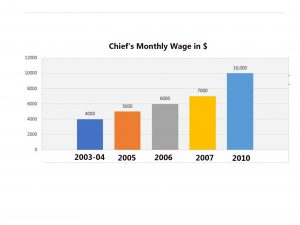
Ships were running, owners were making money. A small ship carrying may be 1000 TEUs and commanding the market price of 15000 $ per day. Today a cape-size ship doesn’t make that money in the so-called improved market. Just 6 months’ back cape-sized ships were earning 5000 $ to 4500 $. The bulk carriers were booming. For chartering a bulk carrier, the freight rate was 1 $ per tonne. So that means if you have a ship of 15000 tons, that means you would be earning 15000 $ per day. All they wanted to keep running the ships, nobody was bothered if you got 4 cadets or one cadet. The 20 and 30-year-old ships were also there in the market, because they were making money.Nobody was discarding them and new ships were coming from China, Japan & Korea. It was a very healthy scenario. In the year 2010-11, the industry reached its peak. At that time, chief engineers were getting 10,000$, I am talking about dry market. There the market got saturated,the freight got bad, the companies got bankrupt, the economy got disturbed and the market completely falls down. And china which was always holding the stocksof raw materials suddenly decided to pull out. That was the time when unemployment started showing its ugly face.
That time the ship-owners were making 4000$ per day and spending 5000$. Losing 1000$/day and hoping the market will recover one day. They were not ready to give you any leverage as far as manpower is concerned. All the ships went for revaluation for manpower, and from 24 it became 22, then 20 and today they are talking about 17. The ship owners were trying to survive first. This lead to more unemployment, people started losing their jobs. 300 shipping companies are manning in India, on an average you can imagine how many people lost their jobs.
Recently, it has started showing some improvement. The tanker market has definitely improved, the containers are not doing bad. In a matter of 2 to 3 years, it will get back on its pace. I hope and wish that the market will improve.
- You sailed on ships and now you are working on shore, what are the drawbacks of working on shore that common sailors fail to realise who aspire to settle ashore?
Sailing has its own pros and cons. The first thing I liked most during sailing, people missed you when you were not there. When you are home every day, your value goes down and a carry bag is given to you for groceries shopping. You lead a healthy life at sea. Everything is scheduled, eating, sleeping, exercising and working. You are breathing the cleanest air, eating a balanced diet. Life seems to be more balanced there.
On shore commuting is a huge problem, if you need to go 10 kms, it takes one hour. It damages your thought process. It kills you slowly, you see so many people, so many cars bumper to bumper. You have to go office at peak hours, it’s very tiring. The most important thing, you get planned leave in merchant navy. You can plan your calendar. Ashore, we can’t plan anything. It’s really difficult to get leave, even on the leave you are attached to work. The burden is never off completely. I miss more ceremonies and get-togethers while working ashore.
- When you talk to an ex-DMET-ian, the gossip never ends without taking about college. On a lighter note, tell me about your days as a cadet in DMET. What role did the college play in your life?
It was a life changing experience, it wasn’t mere a degree. Coming from Lucknow, it had a DADAGIRI culture, I was not at all disciplined. I was poor in English-speaking, though studied in a convent. After joining this institute, I started picking up the language. I inculcated healthy habits in life. Being in proper discipline and my health also improved. I owe, what I am having in life, to the four years of training.
- How about the first years in college, any incident, ragging or something you will like to share.
Yes, it was too much fun. People from my batch still laugh when we talk and look back to those days, even after 30-35 years. We talk about how we were made to shave 10 times in the morning fall-ins, and taking rounds of junior hostel quadrangle. But, the good part was we were never subjected to any dirty ragging or abuse. It was healthy and towards the physical well-being and building up the stamina. It added the value rather than creating fierce in mind.





